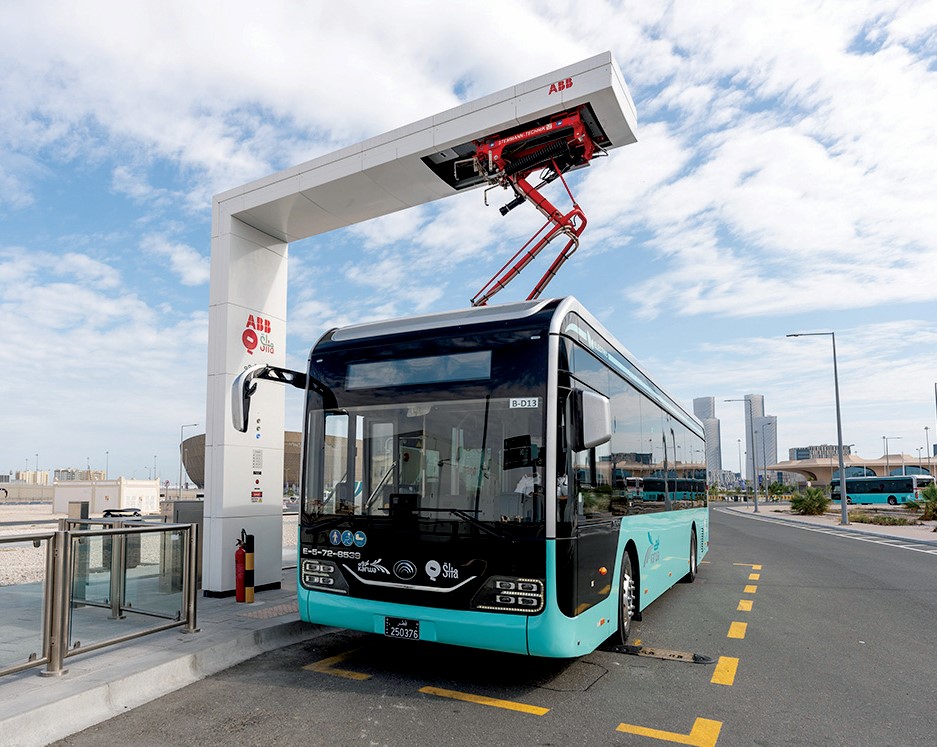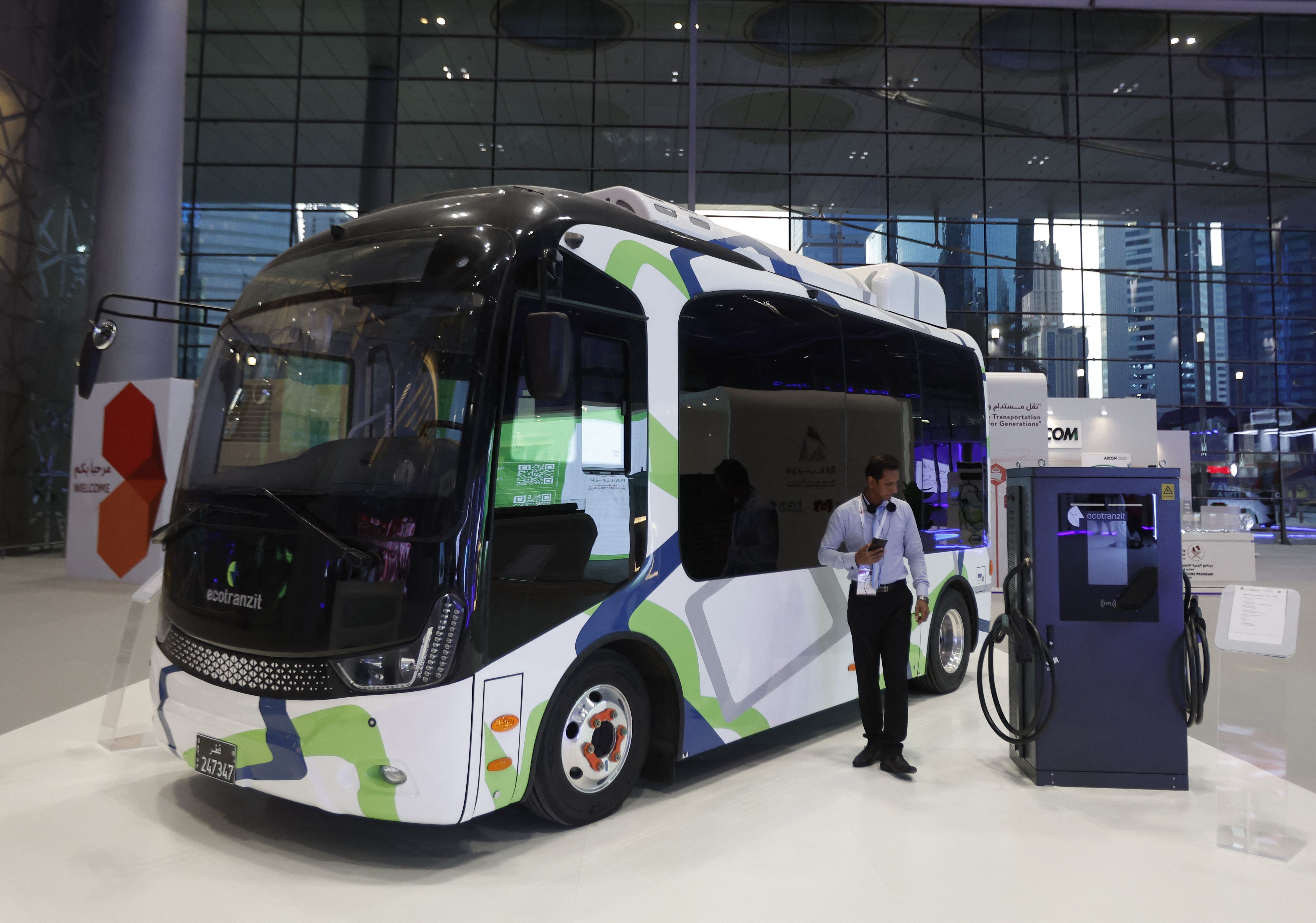Doha-Qatar
Qatar is rapidly advancing its transition to electric mobility, aligning with its Qatar National Vision 2030 and the 3rd National Development Strategy (NDS3), which emphasizes on sustainability, economic diversification and a technology-driven growth and the plans tailored and carried out in this front have played a pivotal role in steering the country towards a sustainable mobility future, including the Electric Vehicle Strategy 2021 that has set ambitious targets, including EVs comprising 10% of total vehicle sales by 2030 and the rapid deployment of EV infrastructure to support a zero-emission transportation future.

This comes in a new report released lately by PwC. The report says that EVs are gaining traction in Qatar and the sales of battery electric vehicles (BEVs) in Qatar are projected to climb from 1.1% in 2024 to around 14.4% in 2035 and sales of plug-in hybrid electric vehicles (PHEVs) from 0.7% in 2024 to 9.6% in 2035.
The report highlights the Ministry of Transport’s key role in spearheading the transition to sustainable mobility with various strategies to support that goal towards a cleaner, more efficient, and environmentally conscious future.
The report indicates that thanks to those strategies 73% of public buses in Qatar are already electric, reflecting tangible transformation to green mobility.

Additionally, the MOT has had a key role in the establishment of an e-bus assembly plant in the Um Al Houl Free Zone in collaboration between Mowasalat (Karwa) and Yutong, the report says.
The 2022 FIFA World Cup Qatar, the report says, served as a landmark event in demonstrating Qatar’s e-mobility capabilities, with over 1000 e-buses providing transportation for fans and visitors, making it the first-ever FIFA World Cup to be held in the Middle East with such a significant focus on electric transportation.
By shifting to e-mobility and cleaner power generation, Qatar can curb the rise in CO2 emissions by nearly 5% compared to an entirely internal combustion engine fleet, reinforcing the country’s commitment to sustainable, low-carbon transportation.
Qatar’s commitment to sustainability, paired with attractive green financing options, further strengthens the case for growth in this space and with a projected annual economic growth rate of 4.1% between 2025 and 2029 and a population set to reach 3.2 million by 2030, Qatar is primed for sustainable market expansion.
The report highlights serious efforts to install more than 1000 charging stations by 2030 supported by plans for 4000 stations by 2035. The report says Qatar has set ambitious renewable energy targets with solar capacity expected to grow to 5 gigawatts by 2035 and this means Qatar has the potential to fully meet EV charging demand through clean energy.
The report says Qatar is investing heavily in developing its e-mobility ecosystem and, in this regard, prototypes of Vim, the first EV to include Qatari intellectual property, were revealed by Ecotranzit in 2023.
Additionally, ABB E-mobility, a global leader in EV charging solutions, has partnered with the Public Works Authority (Ashghal) to open a state-of-the-art service and training center in the Um Al Houl Free Zone, focusing on both theoretical and hands-on training for EV charging infrastructure, the report says.
Qatar is a key investment partner internationally with significant investments by the Qatar Investment Authority (QIA) in major EV battery manufacturing companies such as SK On, positioning Qatar among the key players in the EV battery manufacturing landscape worldwide. Besides Yutong, adds the report, Qatar’s attractive market has already drawn interest from EV manufacturers such as Volkswagen, Porsche and Gaussin.
The report lays the groundwork for a future where Qatar is well-positioned internationally in terms of e-mobility with continued efforts to develop localized EV battery ecosystem, qualify national professionals and enhance international cooperation in R&D, paving the way for Qatar to become an exporter of technologies and components of sustainable transportation to Europe and Asia.

